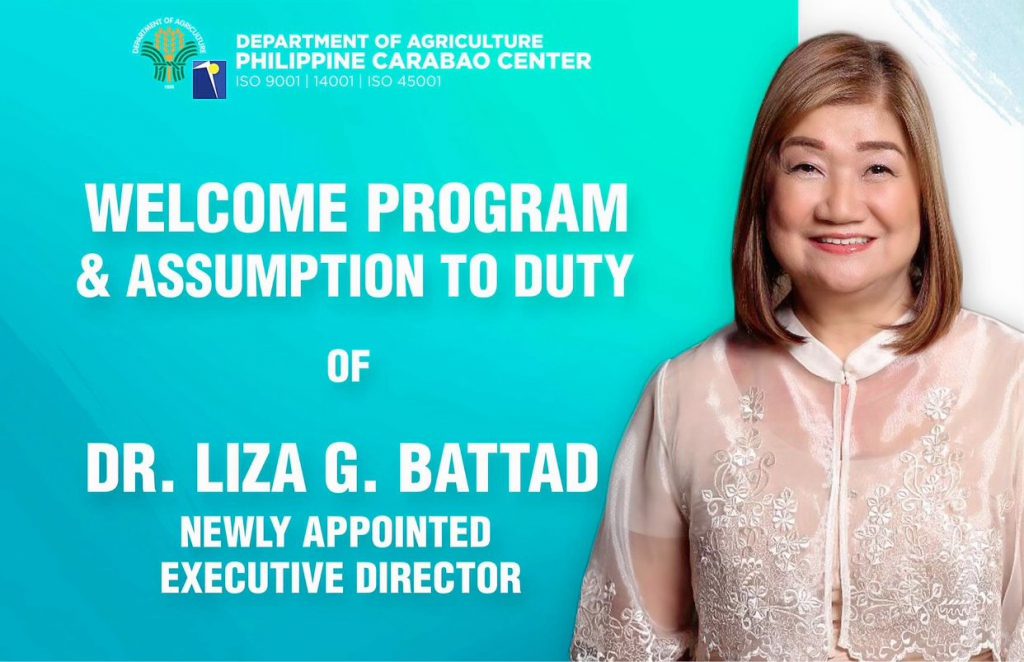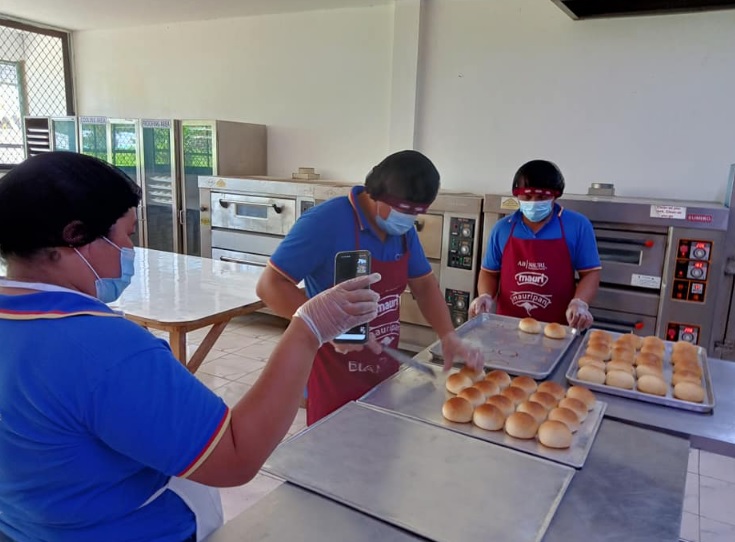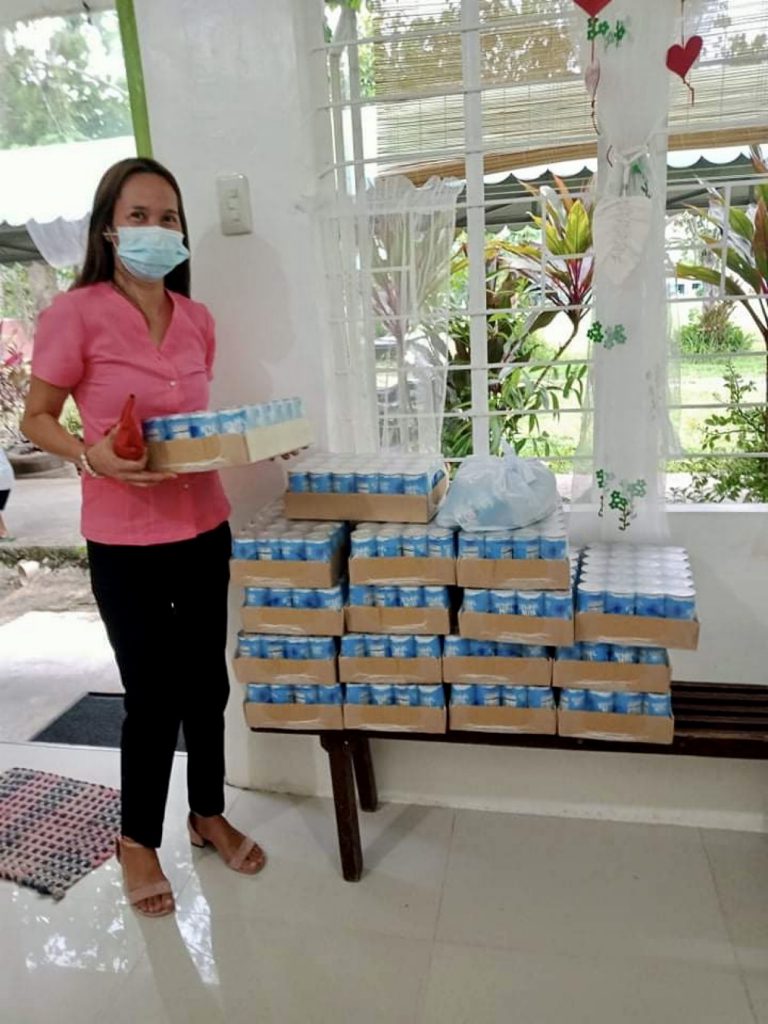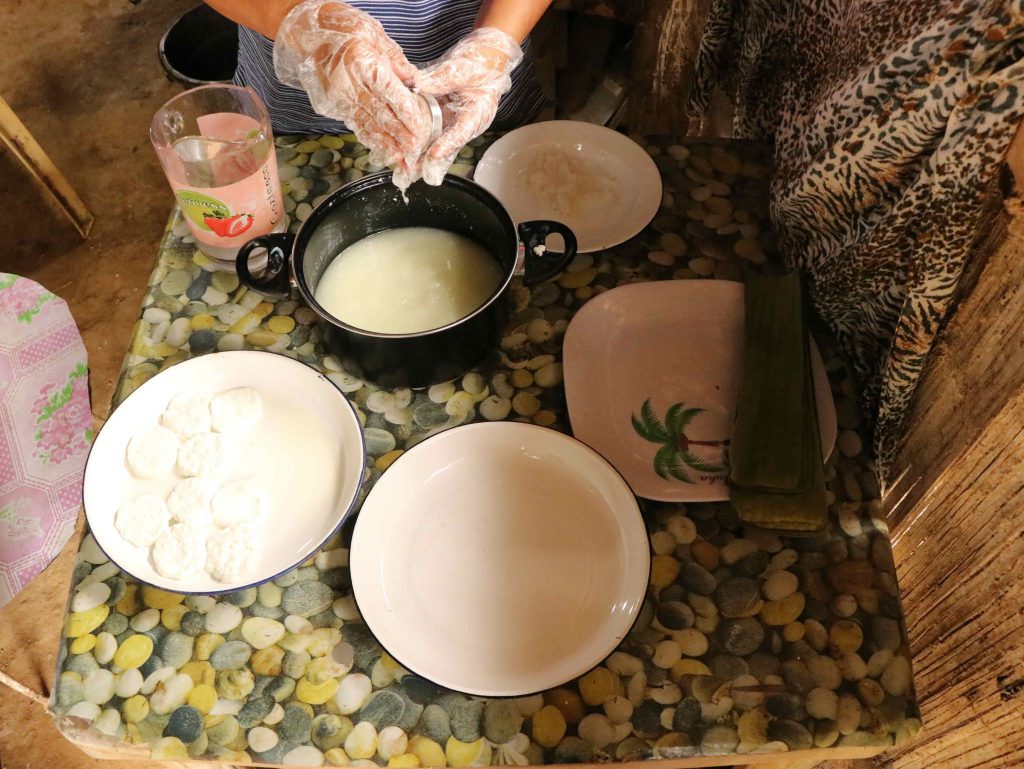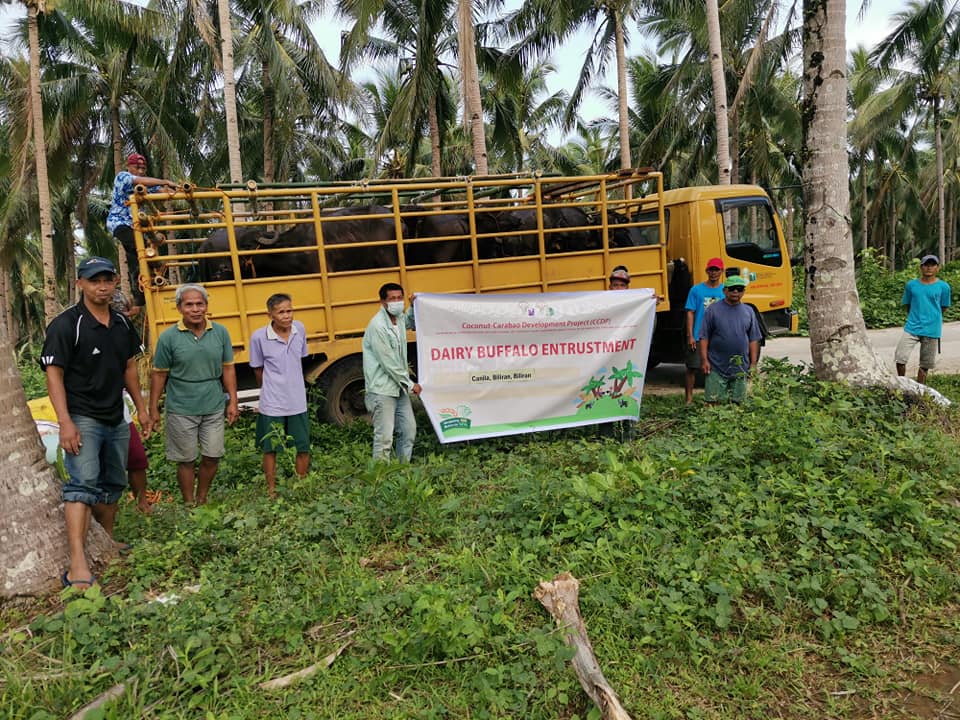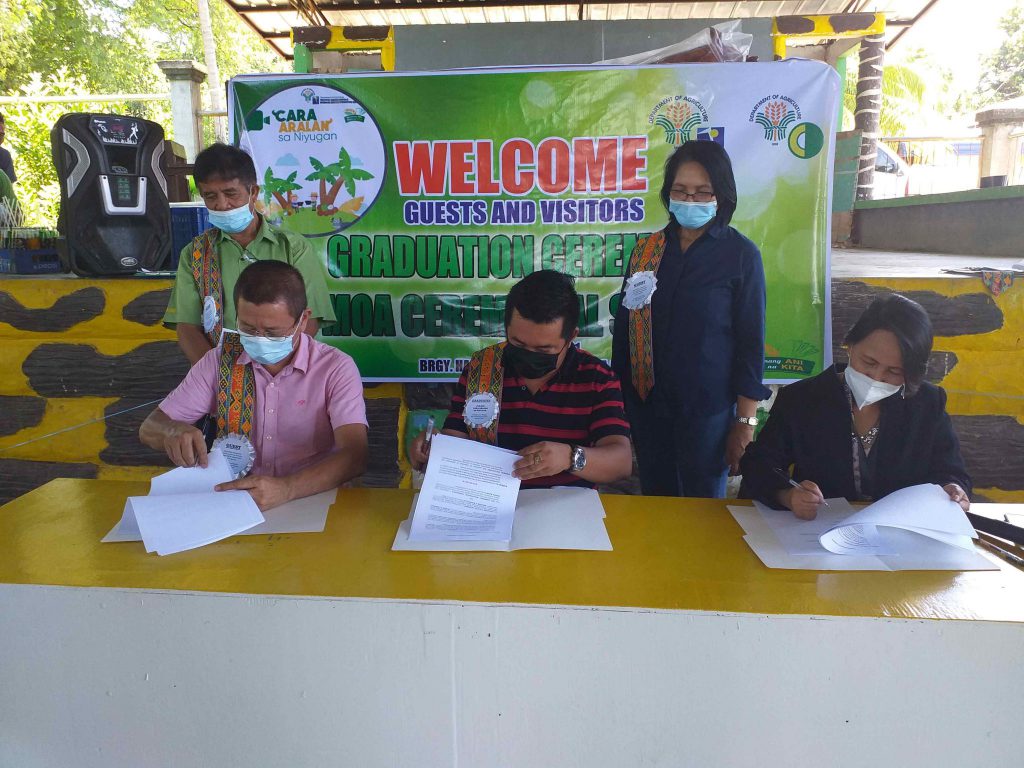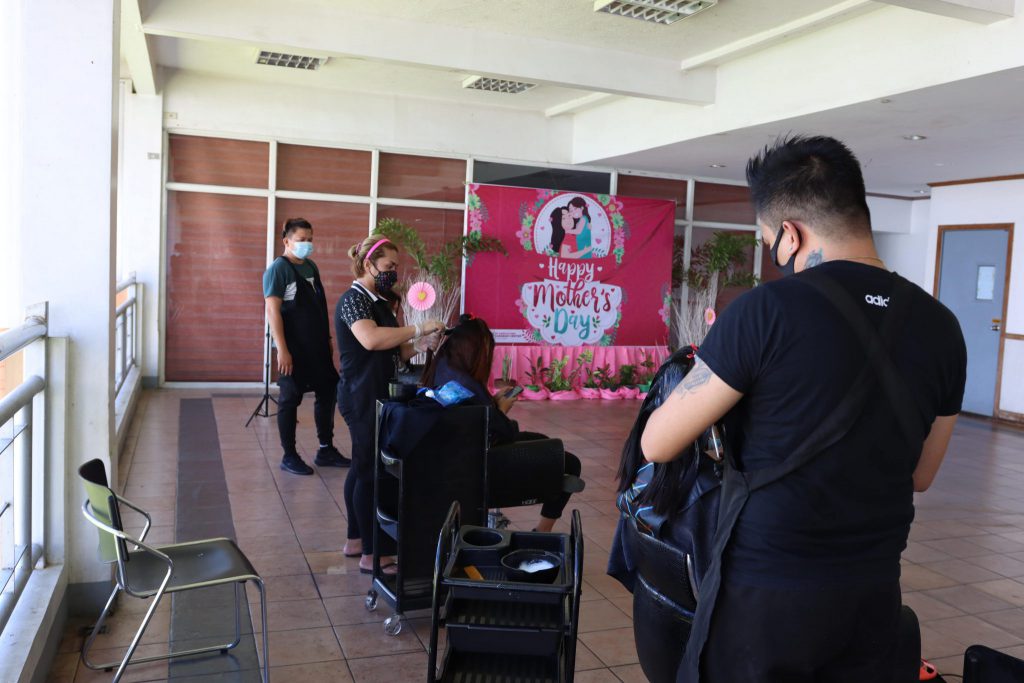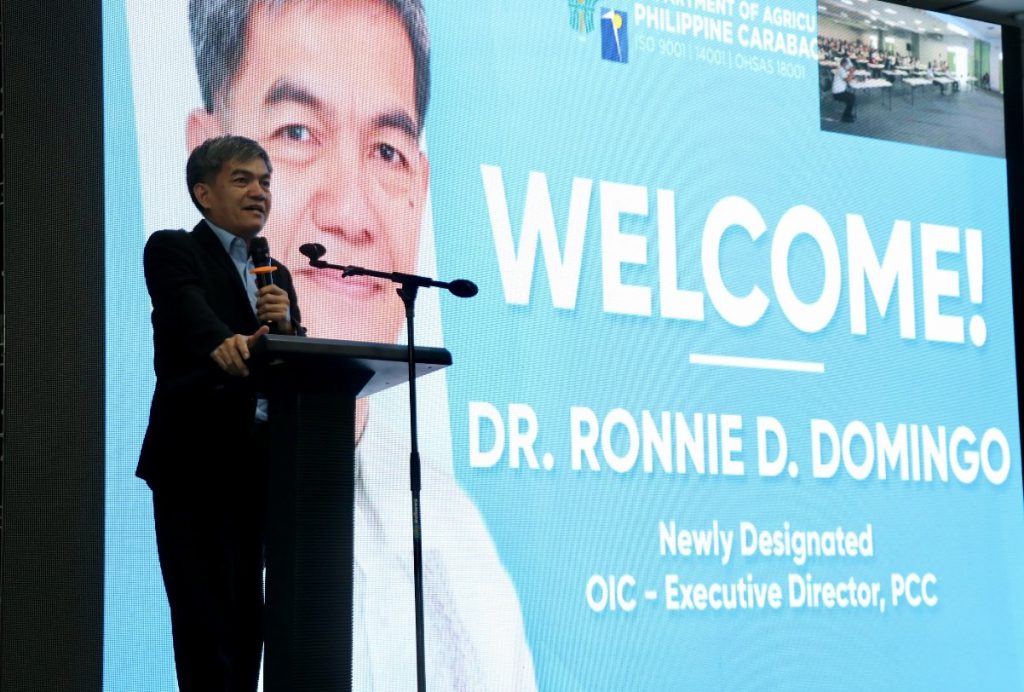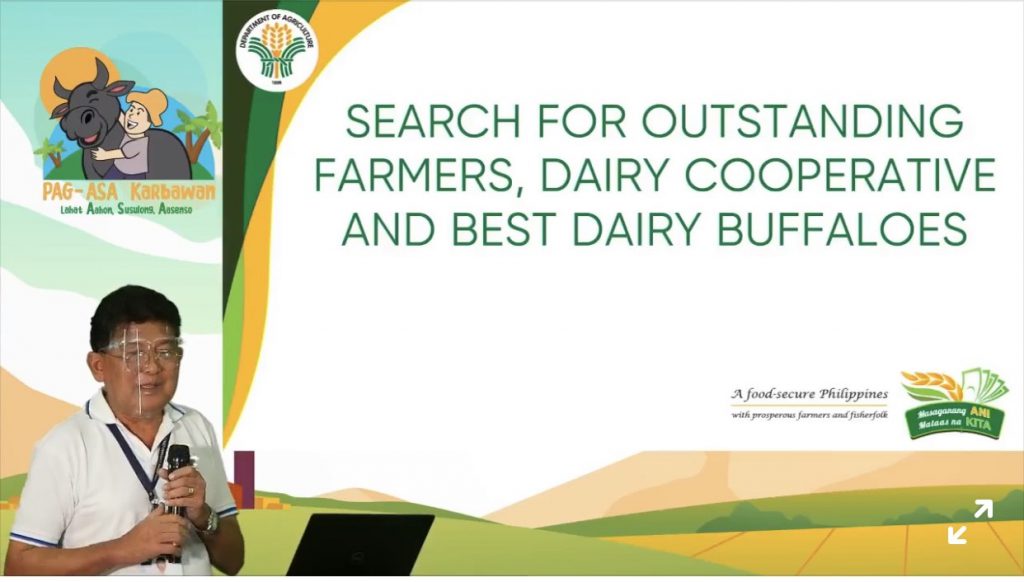Department of Agriculture (DA) Secretary William D. Dar has appointed former chief for planning and information management of DA-Philippine Carabao Center (DA-PCC) Dr. Liza Battad as the latter’s new executive director.
Dr. Battad was formally welcomed by the DA-PCC officials and employees today in a hybrid program (remote and on-site following standard safety and health protocols), as she assumed her functions, duties, and responsibilities as the newly appointed head of the agency.
DA-PCC OIC Executive Director Dr. Ronnie Domingo gave words of encouragement to Dr. Battad as she may face several hurdles in the service along the way, but assured her of PCCeans’ full support.
Deputy Executive Director for Admin. and Finance Dr. Caro Salces believes that the DA-PCC will soar to greater heights and achievements under Dr. Battad’s leadership and that she will lead the agency to become frontrunner of research and development in the livestock sector.
Deputy Executive Director for Production and Research Dr. Claro Mingala congratulated her and anticipated her full service in leading the workforce to attain the tasks mandated to the agency.
Former Executive Director Dr. Arnel Del Barrio also extended his welcome message to Dr. Battad via phone call.
“We’re here to support you and we’re delighted that the new director is a PCCean. I hope that we’ll continue to implement our program as mandated and overcome whatever challenges we may encounter through the culture of PCC i.e., we work as a team, we solve the problem together, and we move forward,” Dr. Del Barrio said.
Division Chiefs Dr. Eric Palacpac of the Knowledge Management, Dr. Eufrocina Atabay of the Research and Development (represented by Dr. Ma. Wyne Pagaduan), Aimee Fulgencio of the Admin and Finance, and Dr. Ericson Dela Cruz of the Planning and Information Management also gave their respective congratulatory messages and committed to give their unreserved support to her leadership, directives, and vision.
Moreover, DA-PCC regional center directors represented by Grace Recta of DA-PCC at Mariano Marcos State University (Luzon cluster), Ariel Abaquita of DA-PCC at La Carlota Stock Farm (Visayas cluster), and Dr. Lowell Paraguas of DA-PCC at Central Mindanao University also delivered their messages virtually.
In her message, Dr. Battad revealed that leading an organization has always been her dream and one of her prayers, thus, she considers her appointment as “fate”.
“I draw inspiration from the former leaders of DA-PCC and the top management. We commit to the sets of success and milestones that we will all work together and let’s make DA-PCC’s presence felt across the country and viewed relevant at the level of the DA,” she averred.
She shared that comfort, hope, renewal, inspiration, serenity, and truth serve as her mantra to become a relevant and innovative leader with well-felt effects on the agency’s overall performance.
“We are destined to serve the purpose of our existence. Let’s be felt as catalyst of significant reforms for our clients. It’s not about us at PCC, it’s about the result of the carabao development program for the welfare of the clients,” she said.
“I hope that we will all be ready for a chance to change. Let us all be strong and stay afloat,” she concluded.
Dr. Battad took her oath of office before DA Secretary Dar last June 9. She was appointed following the retirement of Dr. Arnel Del Barrio, who had held the position of executive director for more than six years. Before filling the position, she had served as DA-PCC’s chief administrative officer and planning officer. Most recently, Dr. Battad served as the acting executive director of the Philippine Council for Agriculture and Fisheries and was also designated, in a concurrent capacity, as DA Assistant Secretary for regulations.
Her mettle and exemplary performance in government service is manifested by her notable accomplishments as DA-PCC’s planning officer; as lead for partnership development and international cooperation; and as head of the agency’s business development and commercialization unit.
Dr. Battad was a graduate of Bachelor of Science in Agricultural Economics at the Pampanga Agricultural College, holds master’s degree in Agribusiness Management at the University of the Philippines-Los Baños, and PhD degree in Community Development in the same university. Her first stint at DA-PCC started as a Project Development Officer II in 1996.

